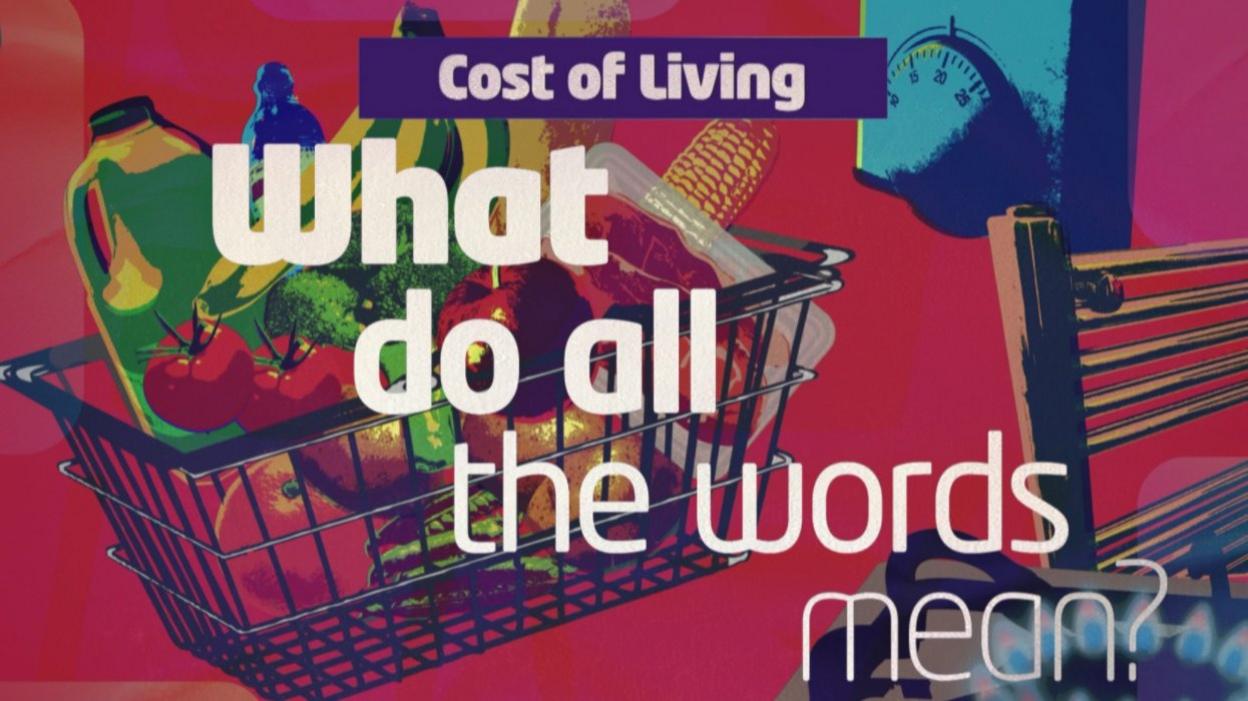School strikes: When are teachers striking in England and Wales?
- Published
- comments
Teachers Strike: Pupils quiz their teacher about why she's going on strike
Teachers in England and Wales will go on strike over pay, meaning some schools may close temporarily in February and March.
The largest education union in the UK, the National Education Union (NEU), asked members - teachers and support staff - to vote on whether to take industrial action - more than 90% voted to strike.
Unions, sometimes known as trade unions, represent workers by negotiating and taking action over things like working conditions or pay.
Education Secretary Gillian Keegan argues that this isn't the time for strikes.
On strike days teachers who are part of the NEU will not work, so many pupils will be off school.
A strike is when a group of workers decide to stop working to try to bring about change.
Employees do this when they want to protest against something they think is unfair where they work, like pay or working conditions.
Strikes often happen because workers want those in charge to listen to what they want.
A strike is a way of taking industrial action to protest.
Why are teachers striking?
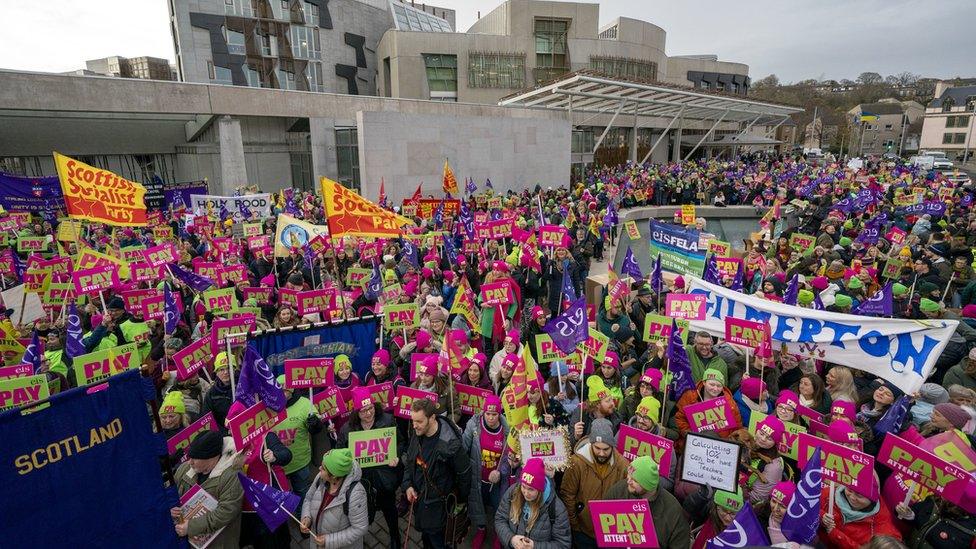
Hundreds of teachers joined a rally outside the Scottish Parliament on the first strike day
The strikes are mainly about pay - how much money teachers get to do their job.
Most teachers in England and Wales had a 5% pay rise in 2022. In Northern Ireland many teachers have been offered 3.2% increases for the last school year and this school year.
But unions argue that inflation - which sees the cost of things, like food and fuel go up - is above 10%.
Many wages aren't increasing by the same amount as inflation so many people are struggling to pay for things - something called the cost of living crisis.
In Scotland, unions asked for a 10% increase in wages, but politicians and councils have said this is unaffordable.
The current offer in Scotland is a 5% rise and an up to 6.85% for the lowest-paid staff.
But the EIS - Scotland's largest teaching union - dismissed the deal as "insulting".
When are teachers striking in England and Wales?
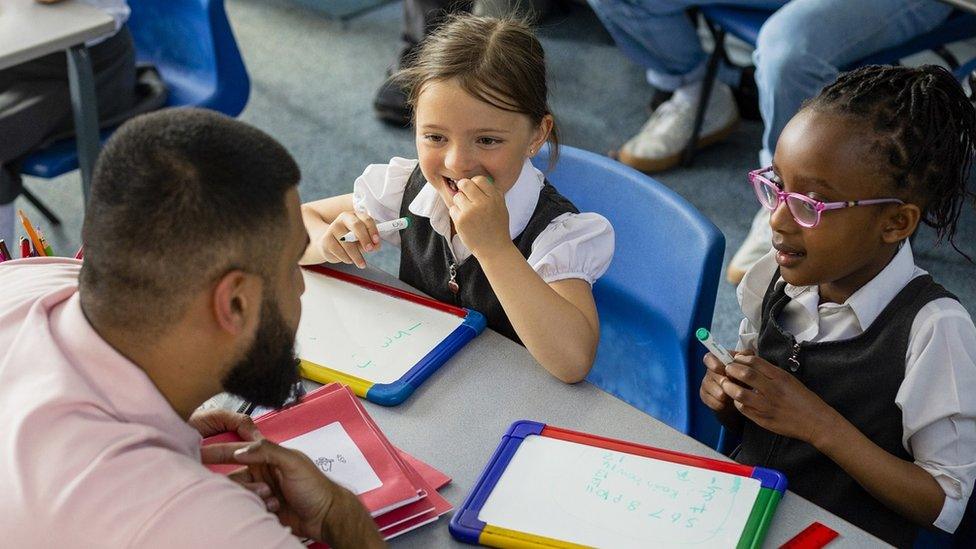
The NEU, which has 300,000 members has announced seven days of action in February and March.
Strikes by teachers who are members of the NEU will happen regionally and nationally on the following days:
1 February: All schools in England and Wales
14 February: All schools in Wales
28 February: North and north-west England, Yorkshire and Humber
1 March: East Midlands, West Midlands, and the NEU's eastern region
2 March: South-east and south-west England, and London
15 and 16 March: Two-day strike of all schools in England and Wales
However, the unions has said that individual schools will be affected by a maximum of four days.
Head teachers will not strike in England because less than half of heads voted, which isn't enough to legally call a strike, but in Wales, head teachers will strike as enough members voted to take action.
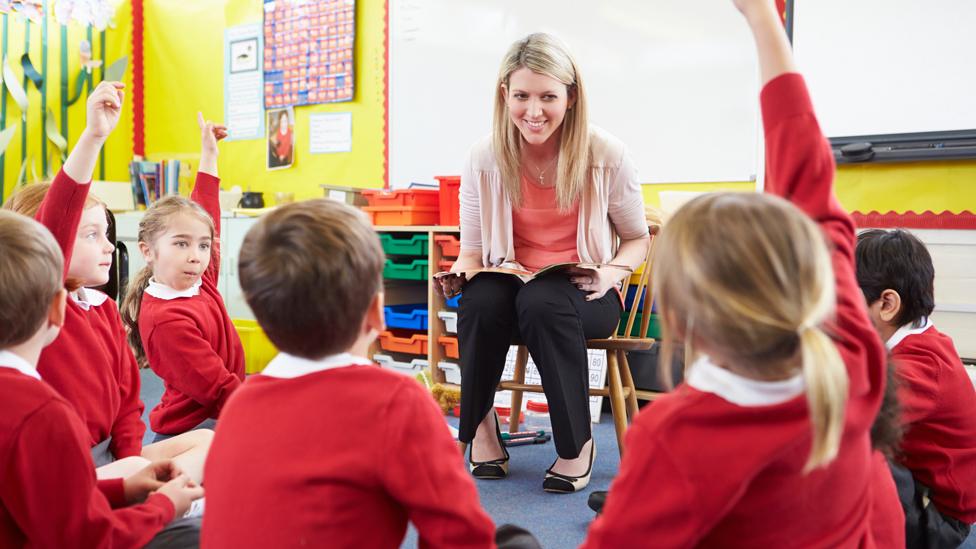
School support staff in England and Wales also voted in favour of striking but in England fewer than half took part in the vote, so they won't be able to strike either.
Meanwhile, another UK teaching union, NASUWT asked members to vote on strikes but also failed to reach the 50% mark for voter turnout needed to take industrial action.
Of those that did vote, 90% were in favour of striking, which the union said sent "a strong message to the Government".
Will schools close during the teachers strike?
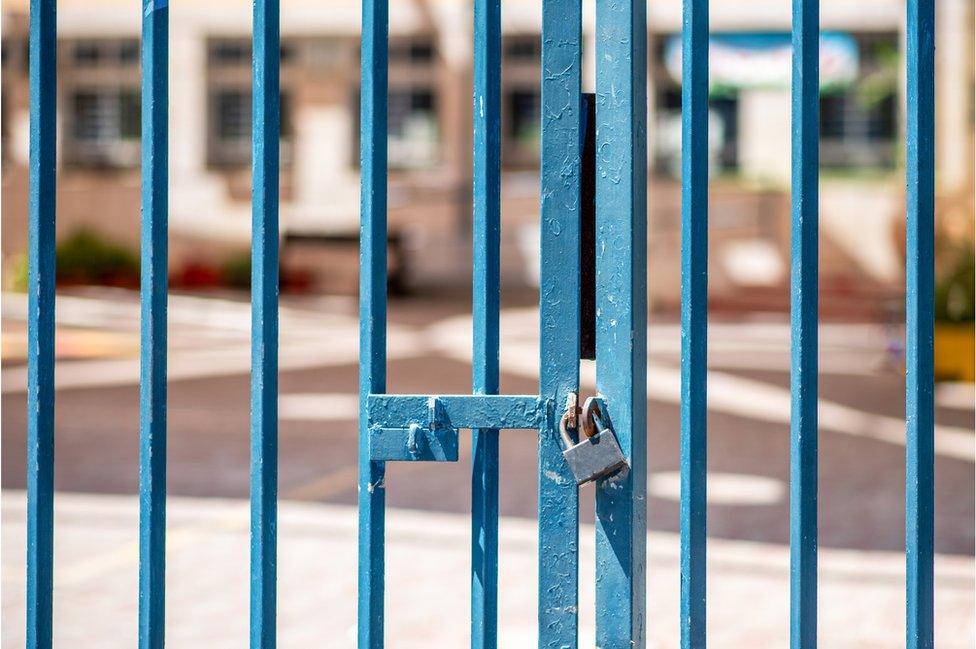
Head teachers are expected to take "all reasonable steps" to keep schools open for as many pupils as possible during a strike, according to Department for Education guidance.
However, it's likely that many schools will close temporarily as a result of the strike action.
The NEU is required to give two weeks' notice of industrial action - such as a strike - to give schools and parents time to prepare.
It's thought that for many schools, children will have return to online lessons at home, similar to how work was done during the pandemic.

Children may have to do school work from home during strike days
In Scotland, local councils decide whether a school needs to close due to teachers striking.
In England, it's up to head teachers if a school has to close and there are no minimum staffing rules on whether a school should or shouldn't stay open.
Headteachers are also responsible in Wales, but have to discuss plans with local authorities.
What does the government say about teacher strikes?
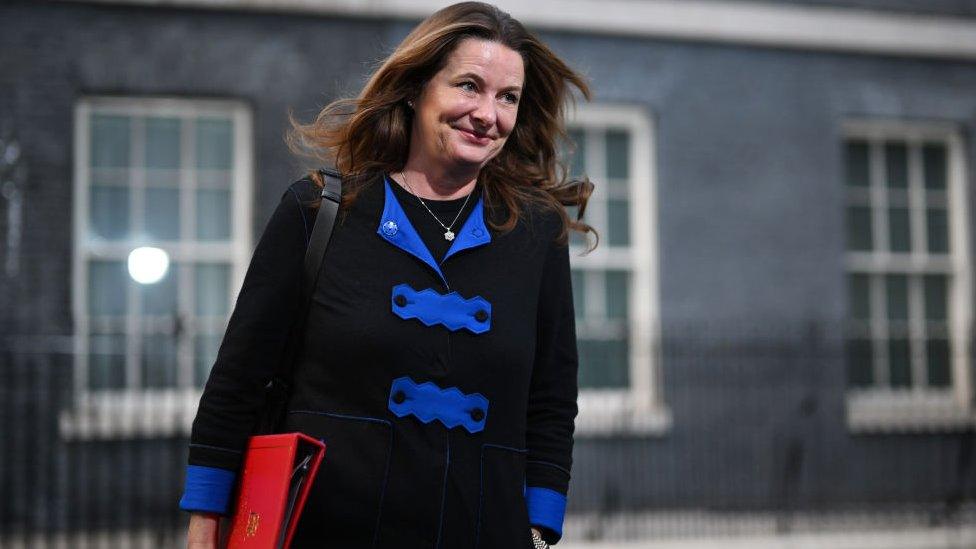
The Government's education secretary Gillian Keegan said "strike action is simply not a reasonable solution" after disruption to lessons caused by the pandemic in recent years.
Downing Street wants teachers to discuss their concerns rather than "withdraw education from children".
"We would continue to call on teachers not to strike given we know what substantial damage was caused to children's education during the pandemic and it's certainly not something we want to see repeated" the Prime Minister's spokesman said.
"We would hope they would continue to discuss with us their concerns rather than withdraw education from children."
What are teachers unions saying about the strikes?
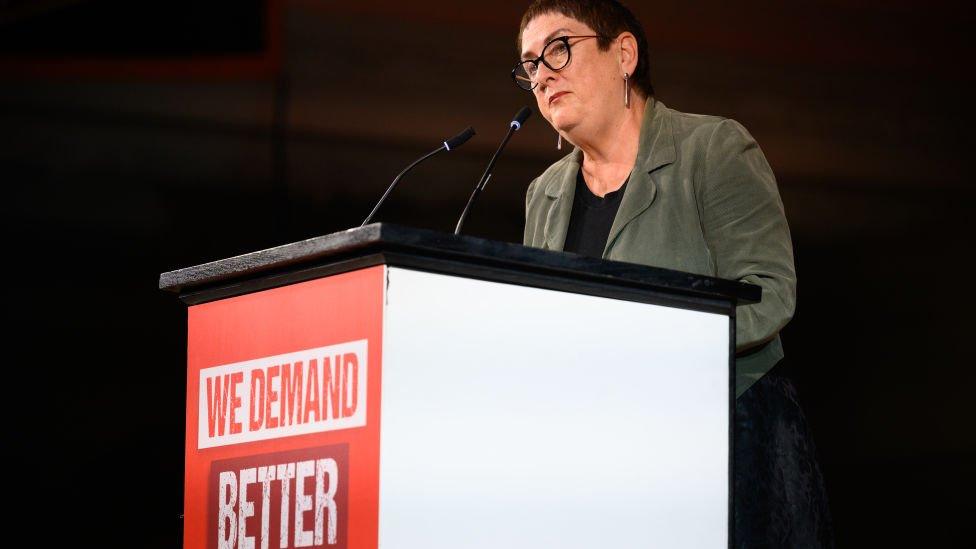
NEU general secretary Dr Mary Bousted says better pay will encourage more teachers to stay in the job
The National Education Union (NEU), the UK's largest teaching union, said it wants an "above-inflation pay rise" to help teachers tackle the cost of living crisis.
Dr Mary Bousted, the NEU general secretary, says 40% of teachers leave the job within 10 years "driven out by overwork and under pay."
"When the government can't get teachers to join the profession and can't get teachers to stay in the profession, in the end that becomes unsustainable and that's where we are now," she added.
Are all the UK teachers striking?
Teachers in Northern Ireland are not striking at the moment but are taking action in different ways - not going to school meetings, doing lesson plans or other tasks such as answering emails and phone calls outside of teaching hours.
Teaching unions in Northern Ireland are also thinking about whether to call a strike in February after half term.
Are teachers still striking in Scotland?
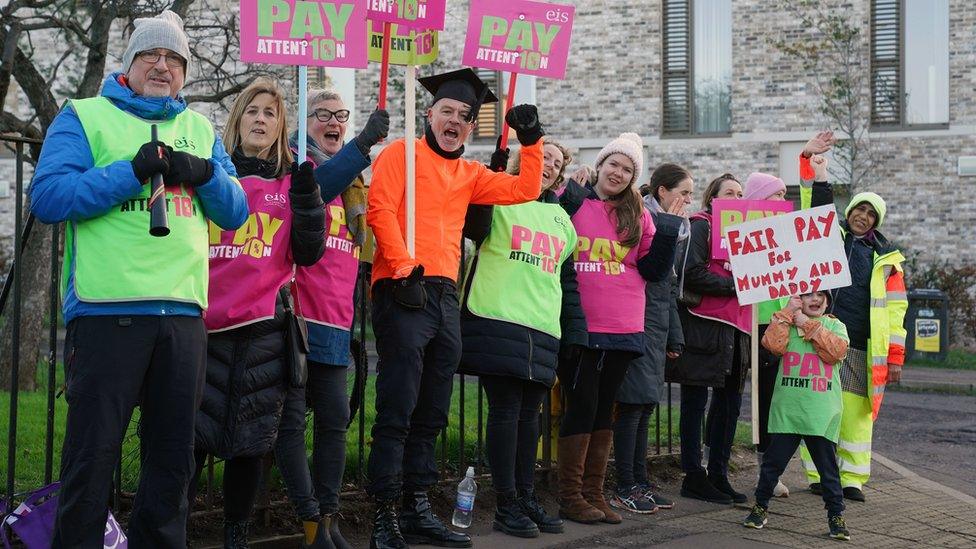
In January, strikes closed almost every primary school in Scotland and every secondary school in the country across two days.
There are more strikes planned in primary and secondary schools.
The Educational Institute of Scotland announced the latest action will be followed by another 22 days of strikes starting at the end of February.
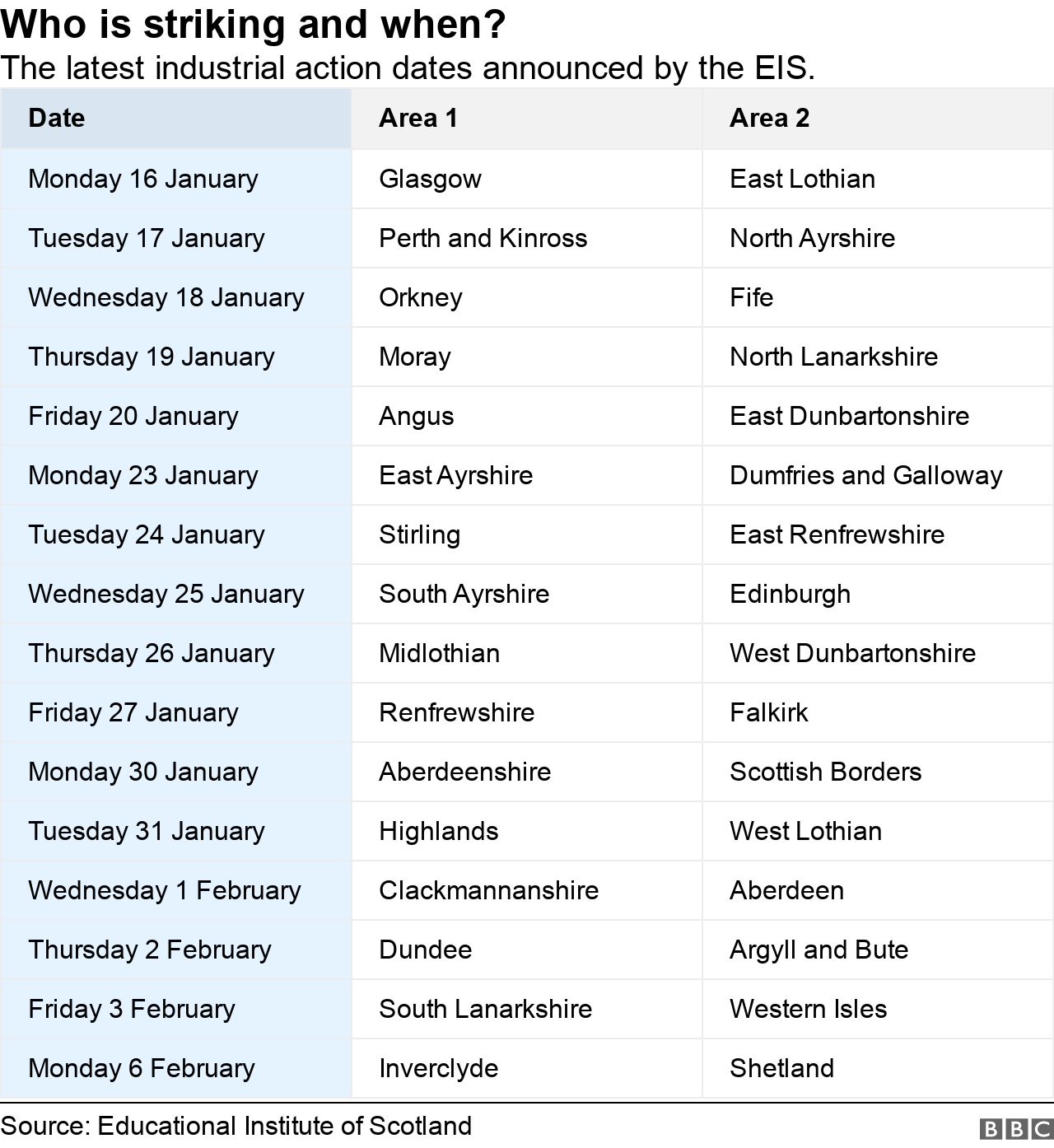
- Published18 November 2022
